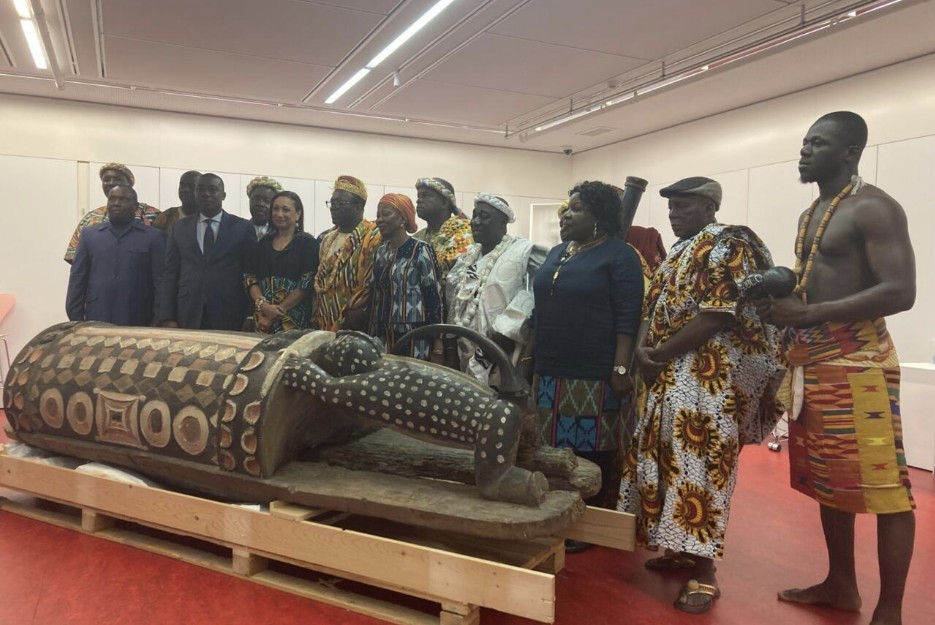Where the Hearth Once Was: Reimagining Home after War
- Ella Browning
- Jul 14, 2025
- 3 min read

In many cultures, the hearth is the heart of the home – a place of warmth, safety, and gathering. In Sudan, that hearth has been extinguished for millions. Conflict has not only destroyed houses, but fractured the very foundations of belonging.
As civil war continues to ravage the country, displacement has become the defining feature of Sudanese life. Camps swell with the newly uprooted. Families are separated. Generations are scattered. Yet amidst the rubble, people still speak of return – or of recreating something like home, elsewhere.
Since April 2023, Africa’s third largest country, Sudan, has been gripped by a brutal power struggle between the Sudanese Armed Forces (SAF) and the paramilitary Rapid Support Forces (RSF). The conflict has become one of the world’s most devastating humanitarian crises and the world’s largest displacement crisis. International Federation of Red Cross and Red Crescent Societies reports show that more than 12.6 million people have fled their homes, with 8.6 million internally displaced and another 3.8 million crossing into neighbouring countries like Chad, South Sudan, Egypt, Uganda and Ethiopia.
Displacement in Sudan is not new. The Darfur conflict of the early 2000s, the Second Sudanese Civil War, and decades of marginalisation have long uprooted communities. But the current conflict’s scale and intensity have rendered many parts of the country uninhabitable, including Khartoum, the nation’s capital and long held a symbol of hope and opportunity.
For many displaced Sudanese the hope to return burns strong; Mohammad Adam, a father of three, and a refugee as a result of this conflict, stated that “all we want is to go home”. Even so, they are aware that their villages have been razed, their livelihoods once built upon agriculture destroyed, and their cultural and religious centres in ruin. Reimagining home is not a choice; it is a necessity. But it is also not enough. The right to return, to rebuild, to reclaim safety and dignity, must remain central. The international community has failed to respond with the urgency and accountability this crisis demands.
For those who have braved the journey of returning, including Nfa Dre who moved back with his family to Khartoum North, what they found was not what they left behind: decomposing bodies, their homes looted, unexploded ordnance in the streets.
And for those who remain in countries like Chad – itself one of the world’s poorest nations – brave Sudanese women such as Fatima Zakaria and Radwa Abdelkarim are finding ways to rebuild their lives and support others.
Fatima, formerly a social worker in El Geneina, now leads a women’s group in Aboutengue camp, helping women earn income through incense-making, basket weaving, and crafts. “Some lost their husbands in front of their eyes,” she says. “I created [the association] to empower them.” The scent of bakhour – traditional Sudanese incense – burns in the small room of her home that now serves as a headquarters for the group, a reminder of what was left behind and a way to keep the idea of home alive.
Radwa, a mother of six, fled the same city and used UN Refugee Agency assistance to start baking and selling bread from Farchana refugee settlement. She now runs two vegetable stores and a bakery, employing a dozen fellow refugees, stressing the importance of ensuring they “can grow together, and [that] no one is left behind” as they work to heal.
Though far from home, these women are piecing together new forms of it – built on community, care, and resistance.
The Sudanese experience of displacement forces us to rethink the meaning of home. It is not just where we are from, but what we carry, preserve, and fight for. In the ashes of war, Sudanese communities are rekindling hearths wherever they can – in refugee camps, diaspora kitchens and shared prayers.
What emerges from the violence are stories of endurance. Resilience. It is a reminder that while people can adapt, they should not have to. The displaced of Sudan do not want to reimagine home forever. They want to return.
And the world owes them the chance to do so.





Comments